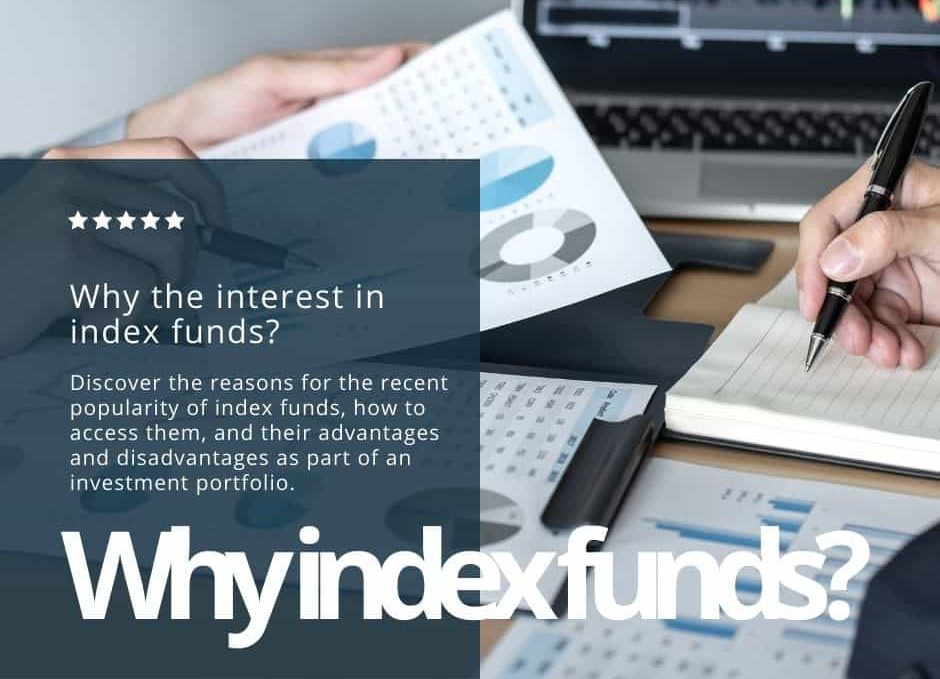Why invest in index funds Australia
Table of Contents
ToggleThis article provides an overview of index funds, including how to access them, their advantages and disadvantages, tips and tricks on how to get the most out of your index fund investments, and concludes with a recommendation to consult a financial planner for further guidance.
Are you looking for an efficient and cost-effective way to invest in the Australian stock market? Index funds are fast becoming an increasingly popular form of investment, providing investors with a simple and affordable way to take advantage of broader market returns. By investing in a portfolio made up of different index funds, you can diversify your investments across many industries and reap long-term rewards – all while avoiding some common pitfalls associated with other investing strategies. But what exactly is an index fund? How do they work? In this blog post, we’ll discuss the advantages(and disadvantages) of investing in index funds so that you can decide if it’s worth considering as part of your investment strategy.
What are index funds and how do they work?
Index funds are an important tool that enable individuals to diversify their investments and reap all the benefits of the stock market without having to select, purchase, and monitor a variety of stocks. At their core, index funds are portfolios of stocks that track (or index) a certain market index such as the S&P 500 or the Dow Jones Industrial Average index. By investing in one index fund rather than numerous individual stocks, investors get exposure to all of the stocks in the index along with lower risk and lower fees. When done right, index fund investing can be an effective strategy to grow an investor’s portfolio over time while minimising costs and volatility.

What are the advantages of index funds?
When it comes to investing, index funds offer an effective and efficient way to diversify across the stock market with minimal effort and expense. Here are the advantages of index funds:
- With index funds, you get the benefits of professional management, lower fees than other types of investments and automatic portfolio rebalancing.
- Index funds have high returns since they track a portfolio index of stocks or bonds without the hassle associated with actively managed mutual funds.
- Index funds provide tax advantages since index funds typically trade infrequently leading to fewer taxable capital gains distributions.
- Index funds are highly liquid. This flexibility allows investors to buy or sell a fund anytime on virtually any day the stock market is open, giving them peace of mind when it comes to their investments.
What are the disadvantages of index funds?
Index funds have become popular in recent years due to their passive nature, low fees, and reliance on the broad indexing strategy. However, index funds have a few drawbacks or disadvantages that should be considered before investing. Here are the disadvantages of index funds:
- Index funds are limited by the index they track; therefore, an index fund cannot invest in an individual stock unless it is part of the index it tracks.
- Index fund managers cannot make changes to portfolio holdings or adjust weights according to changing market conditions; this limits the manager’s ability to capitalise on opportunities that may arise during times of volatility.
- Index funds even come with certain associated risks; for example, if a portion of the index’s holdings decrease in value this will lower overall returns and cause investors to bear losses.
While index funds may be beneficial for those wishing to capture built-in diversification while avoiding excessive costs, they also come with potential risks that need to be considered before making any investment decisions.

Types of index funds in Australia
Investing can be a great way to look after your money and make it work hard for you. If you’re looking for an easy and affordable option in Australia, index funds can be a fantastic choice.
Index funds are low-cost, long-term investments that track specific market indices such as the S&P/ASX 200 index of Australia’s biggest companies by value.
Depending on the index you choose, index funds provide investors with access to hundreds of blue chip stocks across multiple industries. Researching the different index funds available in Australia is an important step when it comes to finding an index fund that offers the right level of risk and potential return for your goals.
Diversifying Your Portfolio with Risk Mix
Investing in a diversified portfolio is one of the most effective ways to safeguard your finances. A good portfolio will include a mix of low-risk investments, such as index funds and bonds, medium-risk investments like real estate, and higher-risk investments, including stocks or cryptocurrency. While these riskier options can offer greater rewards, their potential for higher losses means ensuring you have a balanced mix of investments is crucial to minimising your downside risk.
Creating an ideal portfolio is easier said than done – but by making sure your mix of low, medium, and high-risk investments works together in harmony, you’ll be well positioned to weather any financial storms that come your way.

How can index funds be accessed?
Investing in index funds can help you keep up with the ever changing market. For those looking to get started, index fund access is relatively easy. You simply need to find a broker or financial advisor to make your index fund purchases. Most companies offer index funds in the form of either mutual funds or index exchange-traded funds (ETFs). These index funds often track major markets or provide exposure to different asset classes. This makes them an attractive option for investors who want broad diversification while minimising risks associated with stock picking.
Tips and tricks to get the most out of your index fund investments
If you’re looking to get the most out of your index fund investments, the best way to start is by doing your research.
- Become familiar with the index fund’s holdings, fees, and past performance. This will help ensure that our index funds align with your investment goals.
- Be mindful of volatility; index funds tend to move somewhat in line with their benchmark index but are subject to market swings as well. Taking a long-term view can mean fewer worry-filled days when it comes to market changes during any given year – this also potentially helps lock in gains from good years and minimise losses from bad.
- Index fund investing has become quite popular due to its low fee structure, meaning more of your money stays working for you over time.
Index funds have become popular investments because they offer a low-cost and hassle-free way to build and manage your portfolio. These funds are reliable investments with the potential to generate higher returns than passive investing.
While index funds can be great for some people, it is essential to understand that there are different levels of risk associated with each type of index fund. It is recommended to speak to a financial planner about what type of index fund best suits your risk profile and investment goals. Additionally, building a diversified portfolio is key for long-term stability and sustainability in the world of investing. Finally, with various ways to access index funds such as through a platform or through an investment manager, you can find the option that works best for you.
We hope this blog has been helpful in understanding index funds and how they operate in the Australian market. If you would like further advice on investing with index funds please contact us to learn how they may be used to reach your investment goals.









